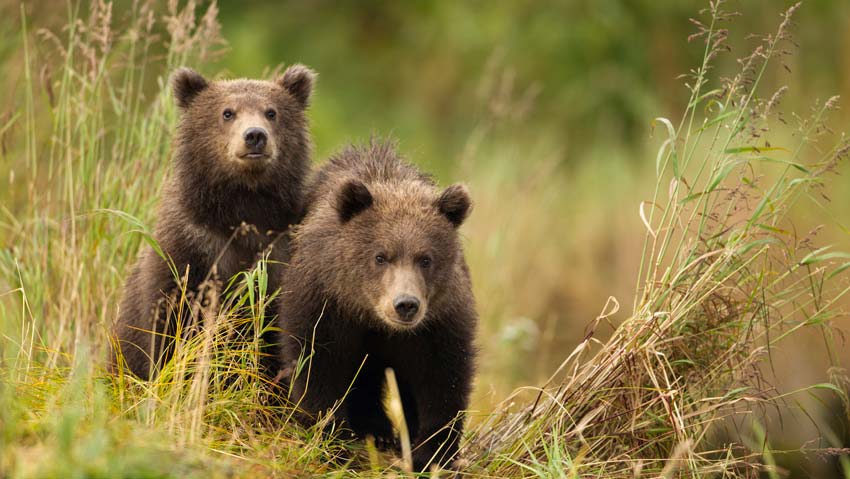Depicted as one of the most ferocious and uncontrollable beasts in Hollywood movies and cartoons, bears act far from their media depiction. Bears are tolerable and intelligent animals that can communicate different emotions through various sounds, including purring, grunting, and moaning.
Although bears purr, similar to the behavior of cats, their purrs sound very different. Bears make a motor-like purring sound when they’re eating a particularly delicious treat or when their mothers nurse them, indicating pleasure and comfortableness.
An Introduction to Bears
Belonging to the Ursidae family, bears are mammals with an average height ranging from four to eight feet tall, with weights from 60 pounds, as seen in the sun bear, to more than 1,500 pounds, as seen in the polar bear. Polar bears can even reach a bizarre weight of more than 2,200 pounds. Bears also dwell in almost every continent, residing in Europe, North America, South America, and Asia.
The eight bear species consist of the Asiatic black bears or the moon bears, brown bears, giant pandas, North American black bears, polar bears, sloth bears, spectacled bears or Andean bears, and sun bears. Six species out of the eight are threatened or vulnerable, as labeled by the International Union for Conservation of Nature’s Red List, indicating that they’re close to extinction.
Some of the distinct features of bears are their short trails, nonretractable claws, and their exceptional sense of smell. Known as solitary animals, only mother bears and their cubs remain inseparable until they reach a certain age. All bears are omnivores regardless of their Carnivora order. Each bear species has a preferred diet, with polar bears preferring to eat seals, American black bears leaning towards berries and insect larvae, and giant pandas’ main diet of bamboos.
Habitat loss caused by logging, increasing human populations, and agriculture is the main contributor to the vulnerable status of bears. Habitat loss lessens the hunting area of bears while increasing their chance to interact with humans, which can elevate to a violent and fatal conflict to prioritize human safety.
Other than habitat loss, illegal wildlife trades also threaten bears, especially Asiatic black bears & sun bears. Traditional Chinese medicine requires bear bile, a body fluid produced in the gall bladder, and deems it as an essential ingredient. Countless people poach sun bears and Asiatic black bears for their paws, skin, gall bladder, and other body parts. Another massive threat to bears is the occurring climate change. (Source: National Geographic)
Do Bears Purr Like Cats?
Contrary to Hollywood’s portrayal of bears as ferocious and crazy man-eating beasts, bears are tolerable and gentle animals. They communicate by sounds, smells, and body language, and one example of this is their purring. (Source: Bear Smart)
Bears naturally purr when they feel comfortable, similar to a cat’s behavior. Cubs make a motor-like pleasure sound in situations where they’re nursing or eating a delicious snack. Adult bears also purr but in a lower voice. In addition, bears also express emotion using a human-like voice when they’re happy, in pain, anxious, and scared. The most intense bear sounds occur during mating battles. (Source: Bear)
